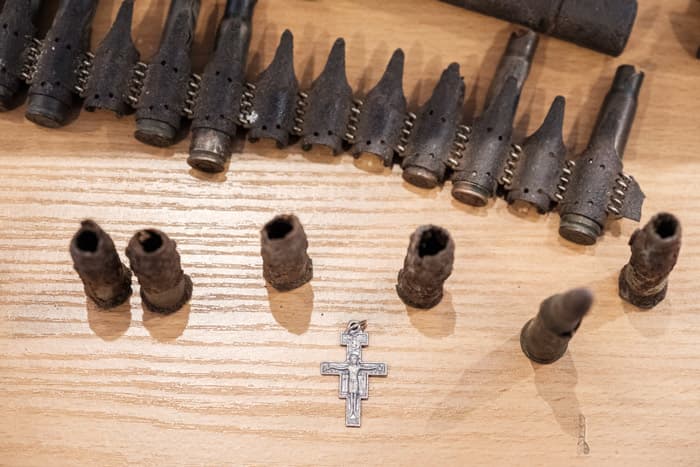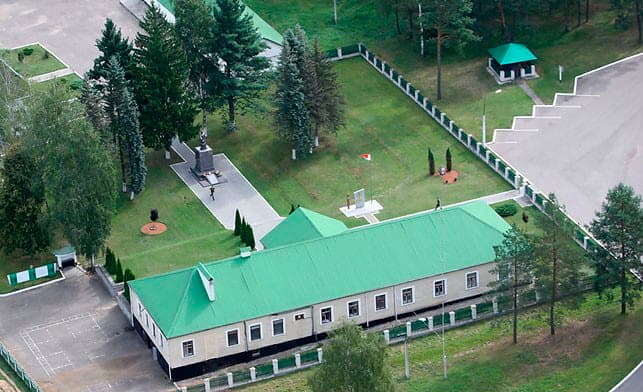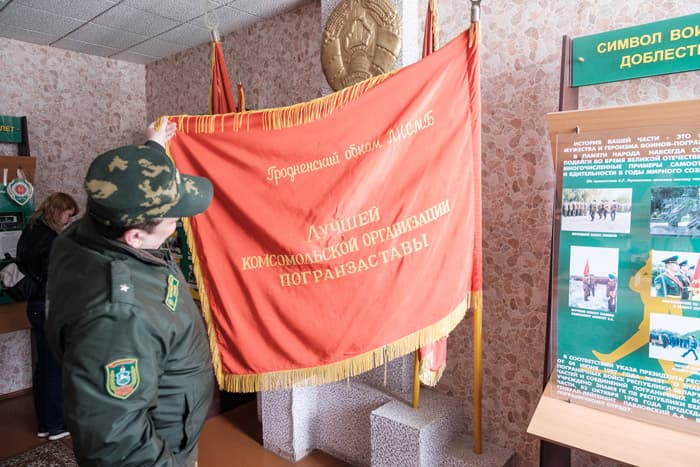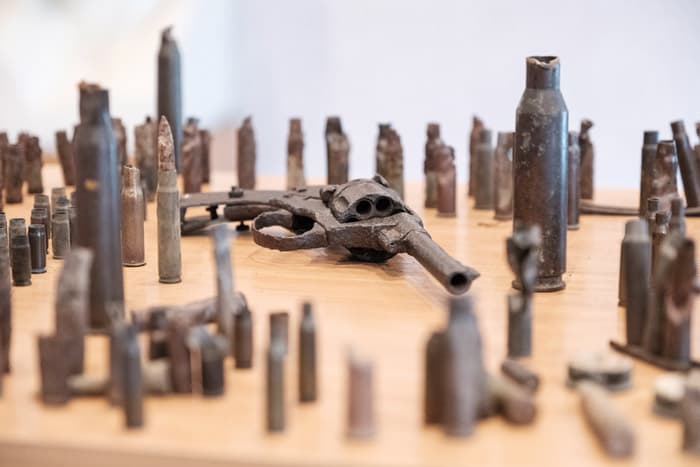Usovo. The border post of Lieutenant V. Usov.
Memorial
Belarus, Grodno region, Grodno district, Usovo
Description
On June 22, 1941, the border outpost of Lieutenant Viktor Usov took the first battle with the Nazi troops. Despite the numerical superiority of the enemy, reinforced by tanks and artillery, the border guards held off attacks for more than 6 hours, repelling three shelling attacks and seven assaults. Lieutenant Usov, who led the defense, died in battle, fighting to the last round. His body was found 10 years later in a trench with a rifle in his hands. In 1965, Viktor Usov was posthumously awarded the title Hero of the Soviet Union.
Today, Usov Outpost No. 1 is an active border post at the junction of Belarus, Lithuania and Poland. A monument to the border guards has been erected on its territory and a museum with authentic exhibits found at the battlefield has been opened. The village of Usovo, named after the hero, and the nearby villages of Noviki and Sopotskin became symbols of the steadfastness of Soviet soldiers who held back the onslaught of the enemy in first hours of the war.
Categories
Exposition
Historical
Comments
Reviews to the Place
1Murphy Darkwalker
11.03.2025
Usov Outpost
Viktor Mikhailovich Usov was born in 1916. After graduating from high school, he received a degree in electrical engineering at the Zaporizhia college. In 1937, the future lieutenant was drafted into the army and, by decision of the draft board, was sent to the border troops. After graduating from the Kharkov Military School, he became the commander of the third border outpost of the 86th August border detachment, which was part of the Belarusian Border District.
On June 22, 1941, the outpost under his command took the first and last battle. An explosion rang out in the middle of the night, and the border guards took up defense in the trenches. Lieutenant Usov, having about 30 fighters at his disposal, divided them into three groups and led the defense of the first line. Despite the numerical superiority of the enemy, the border guards held off the attacks for more than six hours, but their forces were dwindling and ammunition was running out. When enemy tanks appeared, surrounding the outpost, the fate of the defenders was sealed. At a critical moment, Usov took a sniper rifle and opened fire on the advancing Germans.
On that day, the personnel of the outpost performed an unprecedented feat, repelling three artillery attacks and seven attacks by superior enemy forces. The battle was fierce: the fascists, unable to break the resistance, used mortars, artillery and tanks. The border guards fought to the end, and their commander died at the command post, 10-15 meters from the barracks, with a rifle in his hands.
The hero's body was discovered only 10 years after the war in a buried trench. In 1965, Viktor Usov was posthumously awarded the title Hero of the Soviet Union. His name is forever listed in the personnel list of the outpost, which today bears his name. In 1958, the outpost of the Western District was renamed in his honor, and in 1964 the village of Vulka-Dorgunskaya became known as Usovo. A monument to the border guards has been erected on the territory of the outpost, and a museum with authentic exhibits found at the battlefield has been opened in the building. To this day, traces of battles can be found in the vicinity: rusted cartridges and fragments.
The Usova outpost, located at the junction of the borders of Belarus, Lithuania and Poland, has been preserved since pre-war times. There is a mass grave and a museum dedicated to the events of 1941. Visiting the outpost requires a special permit, which can be obtained from the Grodno border guard. The place where the third outpost was located, the former Yuzefatovo Monastery, 1.5 km from Usovo, is included in tourist routes such as Grodno — Usov Outpost – Augustovsky Canal – Grodno.
The village of Noviki, as well as nearby Usovo and Sopotskin, played an important role in deterring the enemy in the early days of the war. Usov's detachment, numbering only 36 fighters, held off the onslaught of superior enemy forces for 10 hours, causing significant damage to him. The commander, having received five wounds, continued to lead the defense until the last moment. His death in the trench in front of the outpost became a symbol of courage and perseverance. A memorial cross and a mass grave have been erected at the site of the battle.






